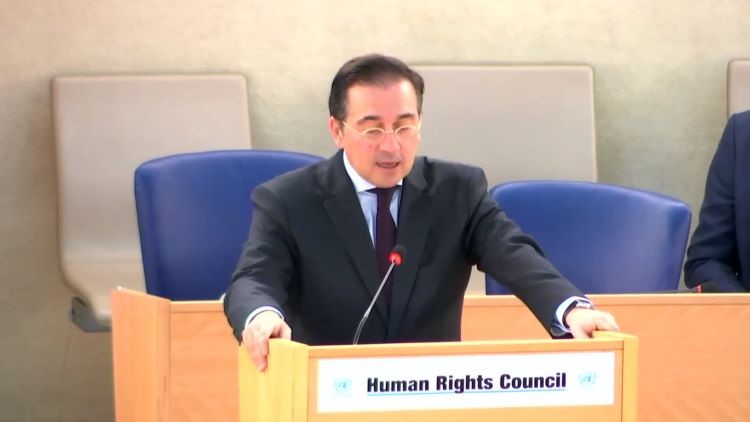Eduardo González
The Minister of Foreign Affairs, José Manuel Albares, announced yesterday in Geneva that Spain has presented its candidacy to be a member of the UN Human Rights Council for the period 2025-2027.
“We are convinced that multilateralism is the way to ensure peaceful coexistence, building trust and building bridges,” said Albares during his participation in the high-level segment of the 55th session of the UN Human Rights Council in Geneva. “And it is in that spirit that we have presented Spain’s candidacy to be a member of the Human Rights Council for the period 2025-2027,” he continued.
“Our candidacy is based on achievements and commitments at the national level: the development of the second National Human Rights Plan, the commitment established in the new Cooperation Law to reach 0.7 percent of gross national income as official aid to development and our feminist foreign policy,” said Albares.
“We are also working to approve a law for the protection of human rights, sustainability and due diligence in business activities and to promote human rights in the digital environment to develop ethical and humanistic Artificial Intelligence,” added the minister.
In his same intervention, Albares reaffirmed “Spain’s unwavering support for the independence, sovereignty and territorial integrity of Ukraine” and reiterated “the need to guarantee accountability for the Human Rights violations that are occurring.”
The Human Rights Council, the main multilateral body for the protection and promotion of human rights in the world, was created by the UN General Assembly in March 2006, replacing the previous Commission on Human Rights, and has its headquarters in Geneva.
The Council is a subsidiary body of the General Assembly that meets periodically throughout the year and has an intergovernmental character. Specifically, the Council is made up of 47 United Nations States elected by the General Assembly through a direct and secret vote for a period of three years. Membership is divided among the regional groups of the United Nations: seven for Western Europe and other groups (including the US and Canada), six for Eastern Europe, thirteen for Africa, thirteen for Asia and eight for Latin America and the Caribbean. The mandate of each Member State is three years, although there is the possibility of being re-elected for up to two consecutive periods.
Spain has been part of this body on two occasions: between 2011 and 2013 (it began during the PSOE Government, with José Luis Rodríguez Zapatero, but was developed mainly under the presidency of Mariano Rajoy, of the PP) and between 2018 and 2020 (the candidacy was presented in 2017 by the then Minister of Foreign Affairs, Alfonso Dastis, in Rajoy’s Executive, but most of the mandate passed under the Government of the current president, the socialist Pedro Sánchez).






